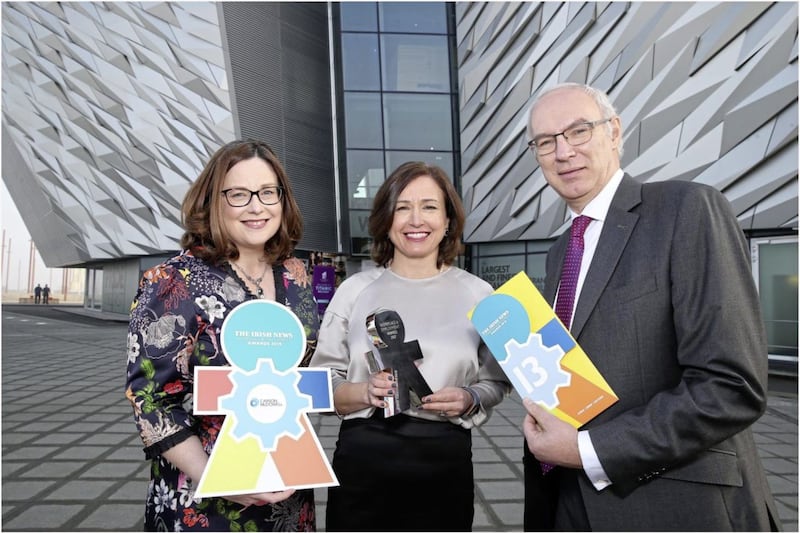DIVERSITY and inclusion should be a board level issue for Northern Ireland companies, not just something that is paid lip service in HR handbooks, according to the head of employment at leading Belfast law firm Carson McDowell.
Partner Orlagh O'Neill said that while championing diversity has been a board priority for the smartest companies for many years, a significant number of organisations have been slow to understand how essential it is to the growth and success of their business.
“There has been a noticeable shift in the number of companies talking about diversity over the past year, particularly gender diversity which has been driven by reporting of the high profile movements like #metoo and #timesup against sexual harassment,” she said.
“There has also been highlighting in the media of the mis-use of non-disclosure agreements to cover up misconduct and mandated initiatives such as gender pay gap reporting.
“The change is long overdue, but it’s clear that the impetus has really been the fear of reputational damage. However, companies should not see inclusivity as a burden – the best businesses have shown that it is not just the right thing to do; it can give them competitive advantage in their market.”
As Carson McDowell enters its third year as business partner of the Irish News Workplace & Employment Awards, Ms O’Neill said the best employers have realised they need to address the issue, with gender diversity the most immediate priority, locally.
“A diverse workforce helps increase productivity, creativity, employee engagement and profits, but it also requires companies to be proactive and to challenge a culture that has been deeply embedded for a long time,” she stressed.
“As employers seek new ways to reduce employee turnover, improve their reputation and widen the range of skills in their organisations, we are seeing that inertia challenged.”
The legal profession too is struggling with lack of gender diversity at its higher levels: in the last five years in England and Wales, 60 per cent of new solicitors each year have been women, but just 30 per cent became partners in law firms.
In Northern Ireland, the figures are slightly better - more women than men entered the legal profession over the past 20 years, but there are still disproportionately fewer women reaching partnership level.
“While good work is being done by law firms to help women maintain their career trajectory, for example by making flexible working and assisted childcare costs more widely available, that is only addressing part of the problem,” Ms O’Neill added.
“Talented women need to be seen progressing into the highest levels of leadership in laws firms and acting as positive role models in order to accelerate change.”
Since appointing its first female partner in 2001, Carson McDowell itself has been bucking this trend.
The firm has just appointed its first female senior partner, Neasa Quigley, and also for the first time, the firm will have more women than men at partner level – a “truly significant” development in only 15 years.
“We are the only large law firm in Belfast with women in the majority as partners,” Ms O’Neill revealed.
“This is a particularly momentous achievement in 2019 as this year marks the centenary of the Sex Disqualification (Removal) Act 1919 which paved the way for women to become lawyers for the first time in Britain and Ireland.”
:: Entries of the 2019 Irish News Workplace & Employment Awards will remain open until Friday May 3, with the finalists being announced on Thursday May 16. More details at www.irishnews.com/wea. Follow us on Twitter at @irishnewsWEA






